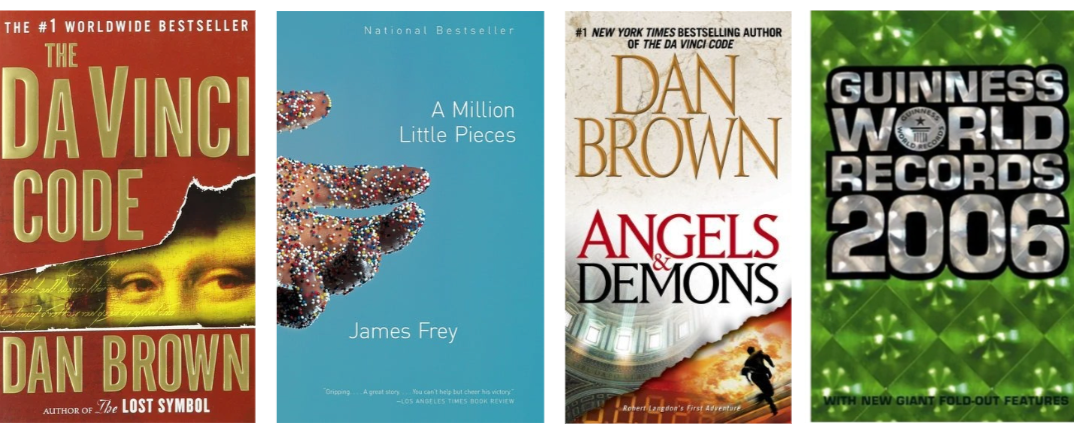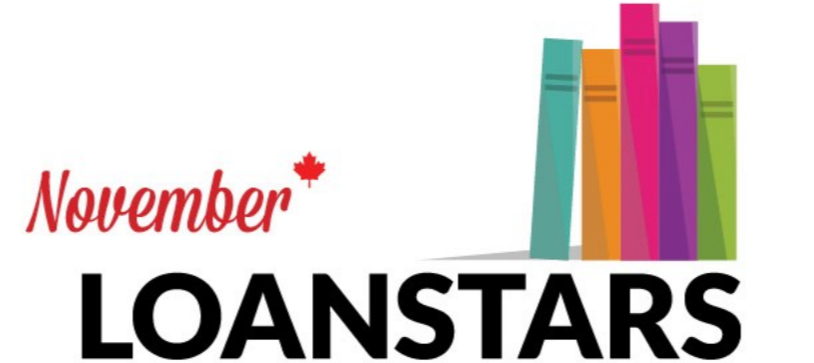What does BookNet Canada know about independent bookstores? A lot. In this podcast episode, BookNet Canada’s Marketing Associates Nataly Alarcón and Aline Zara share highlights from the study The State of Independent Bookselling in Canada 2020, talk about what the last five years of independent bookselling have looked like in Canada in terms of book sales and the pandemic, and share a clip from a recent Tech Forum session.
(Scroll down for a transcript of the conversation.)
Want to make sure you never miss an episode of the podcast? You can subscribe for free on iTunes, Stitcher, Pocket Casts, TuneIn, or SoundCloud.
Further reading/listening
What’s in Store: The State of Independent Bookselling in Canada
Subscribe to start receiving our monthly research newsletter
Transcript
Nataly Alarcón: Hello BookNet Canada podcast listeners, I am Nataly Alarcón, a Marketing Associate at BookNet Canada.
Today I’m joined by my colleague and fellow Marketing Associate, Aline Zara.
In today’s episode, Aline and I are going to be talking about Canadian independent bookselling — from sales performance to the impact of the pandemic on their operations. We have lots to share!
To get us started, we’ll share key takeaways from our recently released study, The State of Independent Bookselling in Canada 2020. This study is a follow-up to the 2018 study, What’s in Store.
But, what’s in this study, why is it relevant? Based on survey results from 55 brick-and-mortar indie bookstores, representing approximately 20% of English-language stores in Canada, this study shares information on operating expenses and processes, revenue and profit margins, and more. It also delves into the impact of the COVID-19 pandemic on bookselling: both what has been difficult and what changes independent bookstores intend to keep. As always, you can find the link to the study — available in PDF and EPUB format — in our episode notes.
Enough preamble, let’s get to the data!
Okay, there’s a lot to share, where should we start, Aline?
Aline Zara: Hi Nataly, let’s start with finances! I’ve pulled some of the highlights from The State of Independent Bookselling in Canada, but if you’re someone who loves graphs, tables, and more in-depth data, I highly encourage you to download your own copy of the study for free. So, here’s what we learned in the study about the revenue of Canadian indie bookstores:
45% of Canadian indie bookstores had a gross revenue of $900,000 or more in 2020. For another 27% of respondents, their 2020 revenue was between $150,000 and $449,999.
We also found that on average, new books made up the bulk of bookstore’s revenue in 2020 at 78%.
Another interesting finding is that the more revenue a bookstore had, the more likely they were to outsource deliveries.
And, bookstores with revenues of more than $1.05M in 2020 designated 7% of their operating expenses to advertising and marketing, whereas this category represented only 3% of the operating expenses for bookstores with less revenue.
Nataly: That’s very interesting! Related to that last item you mentioned, here I have some data on expenses and costs that will help us paint a more complete picture:
The biggest operating expense for our survey respondents was wages and salaries at 48%. And wages and salaries decreased for 48% of respondents.
The next major expense for survey respondents was rent representing 21% of their total expenses. Interestingly, rent stayed the same for 50% of respondents.
We also found that in 2020, shipping costs increased for 83% of respondents and supplies and equipment costs increased for 61% of respondents.
As expected, due to the pandemic and the related closures, events and advertising decreased for 67% of respondents. And the same was true for marketing costs for 43% of respondents.
Aline: To add to that last point and bring ecommerce now into the mix, I have another data point to share:
In terms of marketing, most booksellers agreed that social media was an effective channel for them. From our survey responses, we learned that 98% of bookstores used social media as part of their marketing strategies, and 81% found it very or somewhat effective.
What’s interesting here is that the most used platform was Facebook at 98%, followed by Instagram at 91%, and Twitter at 63%.
Nataly: Oh, really? That makes sense. In our Beyond #BookTok: When social media and publishing collide podcast episode we learned that according to Ryerson University’s Social Media Lab report The State of Social Media in Canada 2020, Facebook is the dominant platform in Canada — 83% of adults report having an account. And not just that, but this platform is used daily by 77% of its users.
Aline: Oh, that’s right! So, it’s no surprise that Facebook would be the most used platform among booksellers.
Nataly: There’s much more that was shared in that podcast episode about social media and publishing. We’ll share the link in the episode notes.
Aline: Circling back to The State of Independent Bookselling,
We found that in 2020, 96% of bookstores were running an ecommerce or online store. For 74% of them, this was not a result of the pandemic since they had already been running an online stores (and in some cases for many, many years) – 24% have had an online store for 11 or more years, 20% for 2-4 years, 19% for 8-10 years, and 11% for 5-7 years.
For the 22% of bookstores that started their online store during the pandemic, common barriers to ecommerce entry were the cost and time involved — from set up to maintenance and just a lack of technical knowledge.
But for the booksellers that were already planning on setting up an online store, COVID-19 just sped up their timeline.
And online selling is something that we’re going to keep seeing in the future – it’s one of the strategies that booksellers were very likely to keep post-pandemic according to the study – along with local delivery, an active social media presence, and hosting online and hybrid events.
Nataly: About this, I don’t think I recall hearing about curbside pickup before the pandemic… Or maybe I wasn’t paying attention. What I know is that it’s been a saviour for many businesses not only bookstores. In the survey, we also asked questions related to this topic. Here’s what they told us:
When asked what percentage of total shipments/deliveries to customers were handled by specific methods in 2020, most respondents on average used curbside or store-front pickup (38%), followed by Canada Post (27%), and free local delivery (20%). Less popular methods were paid local delivery, Canpar, or Purolator.
Aline: That’s it for The State of Independent Bookselling in Canada 2020, but what else do we have about the health of Canadian indie bookstores, Nataly?
Nataly: Using SalesData, BookNet’s national sales tracking service for the Canadian English-language trade book market, we were able to identify the changes in sales for the Canadian indie bookstores that send their sales reports to us. We were especially curious about the year-over-year changes — did the pandemic have as much of an impact as some might think? Or did sales improve or stay the same?
In pre-pandemic times, from 2017 to 2018, the independent bookstore channel saw an increase in sales by 22%, the next year things looked still good, but the increase was lower, from 2018 to 2019 the increase in sales was only by 4%.
Aline: And what about 2020 and 2021?
Nataly: Well, from 2019 to 2020 sales decreased by 2%, but independent bookstores were not the only ones that saw this change, the entire book market saw a decrease in sales by 3% between 2019 and 2020. Now, from 2020 to 2021, sales in Canadian independent bookstores increased by 23%.
Aline: 23%? That’s amazing! It’ll be interesting to see how 2021 compares to 2022.
Nataly: Oh, and by the way, if you want to learn more about the sales performance of indie bookstores in 2019 and 2020, average inventory levels, sales of non-book items, staffing changes, etc. all this information is available in the study.
So, now that we’ve shared insights into the sales of indies and learned about the study, here’s more about the survey respondents: 70% of them have been in business for 15 years or more, 16% for fewer than 3 years, and 14% between 3 and 14 years. And of that 16% who have been open for fewer than 3 years, several of them actually opened their bookstore during the pandemic!
Aline: We heard from some of these booksellers in our January Tech Forum panel session: I opened a bookstore in the pandemic! — a link to the video will be in the episode notes.
For this session, we were joined by Lori Wightman from Amherstburg’s River Bookshop, Stacy Batchelor from Revelstoke’s Fable Book Parlour, and Kerri Doyle from Victoria’s Books & Shenanigans. Our BookNet Canada colleagues Tim Middleton and Hannah Johnston moderate.
Tim Middleton: Okay. So, what were your expectations about running a bookstore versus what it was really like? I know you've alluded to some of your thoughts pre-bookstore launching, but now you're actually running the bookstore. How's it matching up?
Kerri Doyle: Honestly, keep in mind, I am not two months in. So, I have really rose-coloured glasses, potentially, but it is the best thing I ever did.
So, it's actually way more awesome than I thought it was gonna be. Like, you know, I have had a business before, and it was fine. But this business, it is just all of the awesome. The people that come in, they're so excited to see me. They're so happy to talk about books. I thought, "Oh, as a bookseller, I get to talk about books." And I do. Like I thought, "Oh, that's probably not going to be true." No, but it is. I get people to ask me, "What do you want to read? What do you read?" Oh, my God, I love it. The one thing, I guess, I didn't know is just how much all I do is think about the bookstore at all times. Like, I can't turn it off. So, I just started closing one day a week on Mondays and I was like, "I can't do bookstore stuff." But actually, I have to. And like just there's way too much to do. So that part of it, I guess, would be more of a surprise.
The other big surprise is, and this isn't probably nice to say, I don't get the publishers and the distributors and how they do things. And I'm having a hard time understanding it. And I've been in other industries, and I'm surprised by that, about how complicated it is. It's just that part is surprising.
Tim: That's really interesting. Lori?
Lori Wightman: Okay. You can literally just rewind what was just said, and that's exactly...
Tim: That's it. That's where it's going.
Lori: Yeah. The idea of, you know, "I get to sit, talk about books all day. It's going to be so wonderful." Absolutely, that happens. People come in and you find yourself like with a 20-minute conversation with someone about a book you read 10 years ago. That's great. It's all the behind-the-scenes stuff that I had no idea there was so much like just work.
It's funny, I imagined like, you know, I don't know, like a Disney bookstore, you know, where I just flit around and pick books off the shelves. And I didn't anticipate all the work. And we, too, just started closing Mondays. We were open seven days a week. We just started closing Mondays. Monday is one of my days off now, but I find myself doing bookstore work at home, you know, searching for books and putting orders in. Because, when you're in the store, you don't want to be doing that. You want to be talking to people. So yeah, exactly the same for me. I imagined it this kind of, you know, like I said, like a Disney bookstore, like Beauty and the Beast when Belle goes into the bookstore, where it's just all fun and games and books everywhere. I didn't anticipate the work. Well worth it, absolutely worth it, just totally didn't anticipate that.
Tim: Stacy, do we just hit the replay button for you?
Stacy Batchelor: A little bit, although I'm feeling rather spoilt because I have two additional business partners — one who does the music side of things and one who sort of does everything. But she comes from a retail background, she also worked at a bank. And she actually enjoys the administrative, like bookkeeping. She does our cash flow stuff. Like I know how to do the ordering, but she is the one who connects with the distributors. So, I'm very spoilt. I definitely feel like I get to just swoon in and talk about books, which is absolutely wonderful. You know, it really is so much fun.
Things that have surprised me that I didn't expect in a small town is I kind of... I mean, I knew people were keen on it, but the amount of support from the locals here and the amount of enthusiasm, you know. For me, just my personal interest, a big part of it was creating a space with like a real energy. You know, I spent a lot of time on décor and what it's going to look like and what it's going to feel like and how it's going to flow. And just having people come in and say, which almost happens every day, someone says, "This space is just so amazing. And the books that you guys have picked..." Like the amount of positive feedback... Like I knew people would feel that way, but people go out of their way to express it. And that feels so wonderful. And so that was a bit of a surprise to me.
The other thing that I find surprising, a couple of things, is the amount of power that you have to hand-sell things as a bookseller. I mean, I knew that I would talk to people about books, and I wanted to, and so I love that part. But, you know, every time I read a book that I really like, I look at the sales, and it's significant. The number of times people come in, and they're like, "Well, what do you think?" And I'll say, "Oh, I've read this. This is what this is like." And they end up buying them consistently, you know, which I kind of, I mean, of course, they do. It makes sense. But at the same time, I kind of thought people would say, "Oh, okay, well, that sounds interesting, but I'm gonna buy this," you know? So, the power of sort of hand selling really is stronger than I thought it was.
The other kind of thing that just sort of randomly I didn't anticipate so much is the amount that TV and movie adaptations, and the amount of effects that they have on book sales. So Dune, for instance, which, you know, we know, is a sci-fi book written in the 1970s. It's already been made into an adaptation, you know. Anyhow, with the new movie coming out, we ordered a few extra, but I didn't anticipate the amount of demand for that, given the movie has come out. So, it's kind of cool to see how culture kind of vibes between sort of popular culture in TV and film and books as well. So that's been kind of a fun surprise for me, too.
Nataly: The whole discussion was very interesting, the questions from the audience were also great, so, again, we highly encourage you to watch the recording of this session and hear from booksellers themselves about the lessons they’ve learned and how they’re establishing themselves within their communities and forging relationships with their customers.
And with this, we’ve reached the end of today’s episode. Remember that Tech Forum continues to offer webinars throughout the year. You can learn more about upcoming sessions at techforum.booknetcanada.ca and watch previous sessions on our YouTube channel. And don’t forget to keep an eye on our upcoming research — an easy way to stay on top of all things research is by subscribing to our monthly newsletter.
Aline: Before we go, we’d like to take a moment to acknowledge that BookNet Canada staff, board, partners, and our makeshift podcast studio, operate upon the traditional territories of the Mississaugas of the Credit First Nation, the Anishinaabe, the Haudenosaunee, and Wendat indigenous peoples, the original nations of this land. We endorse the calls to action from the Truth and Reconciliation Commission of Canada and support an ongoing shift from gatekeeping to space-making in the book industry. And we hope that our work, including this podcast, helps to create an environment that supports that shift. We'd also like to acknowledge the Government of Canada for their financial support through the Canada Book Fund. And of course, thanks to you for listening.














Mid-year market data from the Tech Forum presentation, Ready, set, go: Pre-fall sales trends and data-driven insights.